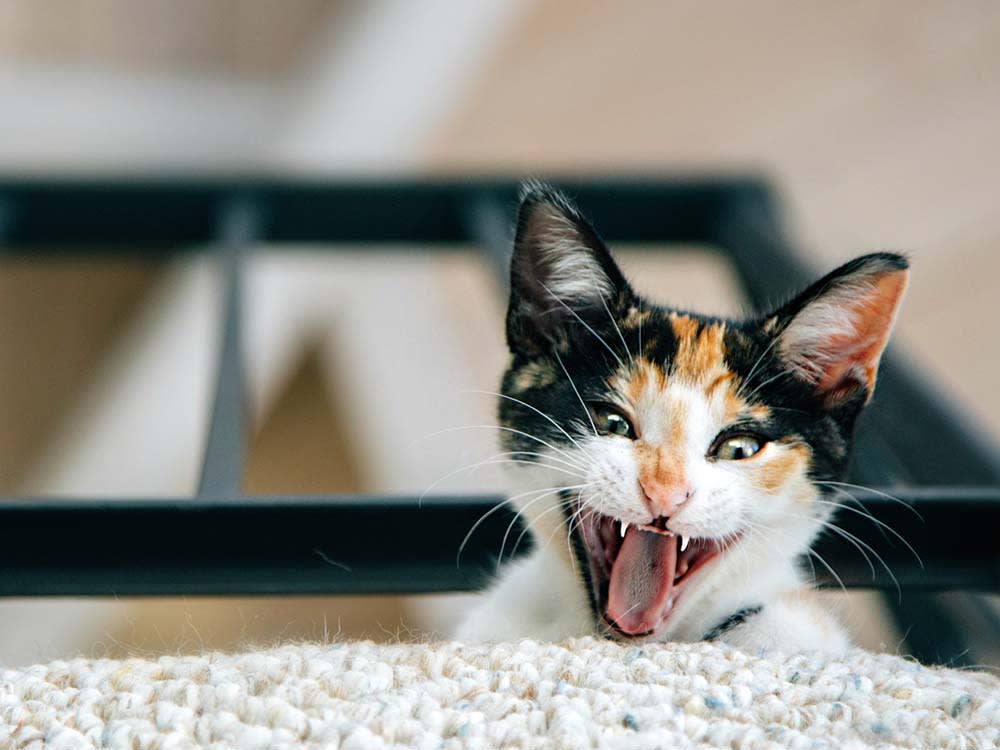Your Cat is Probably a Psychopath, Study Says
The meow is coming from inside the house.

Share Article
You thought late-night zoomiesopens in a new tab and jumping from the kitchen table with a full drumstick in their mouth was just a part of your cat’s zany personality. In an unfortunate turn of events for cat owners who refer to their pets as “fur babies,” researchers say your cat’s proclivity for staring contestsopens in a new tab may be a lot more menacing than you initially thought. A 2022 study conducted by researchers at the University of Liverpool and Liverpool John Moores University surveyed 549 cat parents opens in a new tabto determine levels of psychopathy in felines. Turns out, cat psychopaths, also known as cats, are everywhere.
The test, known as the CAT-Tri+, asks 46 questions about your cat’s behaviors, including whether your cat likes to test their vocal range loudlyopens in a new tab and often, gets the zoomies at odd hours (symptoms of which may include sliding into furniture), or provokes other pets or humans in the household. If this all just sounds like regular cat behavior to you, it’s probably because it is. Apparently, all cats have some level of psychopathy, the amount of which can be determined by what seems to be the pet equivalent of the enneagram test. The reason? Evolution, of course.

Get (totally free) deals for food, treats, accessories, tech, and way more pet parenting must-haves.
opens in a new tabAccording to the Journal of Research in Personality, “In an ancestral environment that demanded self-sufficiency, wild cats that had higher levels of psychopathic traits may have been more successful in acquiring resources (food, territory, mating opportunities).” So, at least you know your cat is acting this way because they want to eat your food, run the house, and be desirable mates. This knowledge doesn’t make them bouncing off the walls at 4 a.m. and skidding out of their litter box because they saw a ghost any less weird, but it does make it more palatable.
All joking aside, the research needed to prove whether most cats are, indeed, psychopaths is lacking. The study’s survey qualifies such basic behaviors as “my cat demands attention” to common feline rebellions like “disobeying house rules” as evidence of psychopathic behavior. If this were the case, nearly all cats, dogs, and humans would likely qualify for some form of psychopathy.
One cat advocate, Jackson Galaxyopens in a new tab, strongly advises against taking this scientific study as gospel, stating “These are all 100 percent normal cat behaviors” in a video dedicated to the subject matter. So while one study has found that all cats have some degree of “psychopathic tendencies,” the same could be said for our other beloved pets and, perhaps more believably, us too.

Avery Felman
Avery is a writer and producer. She has written for numerous publications, including Refinery29, BuzzFeed, and V Magazine. When she’s not at her computer, you can find her reading, practicing her Greek on Duolingo, and delving into the Sex and the City discourse. She lives in Brooklyn, New York with her husband and their cat, Chicken, who rules with an iron fist.

